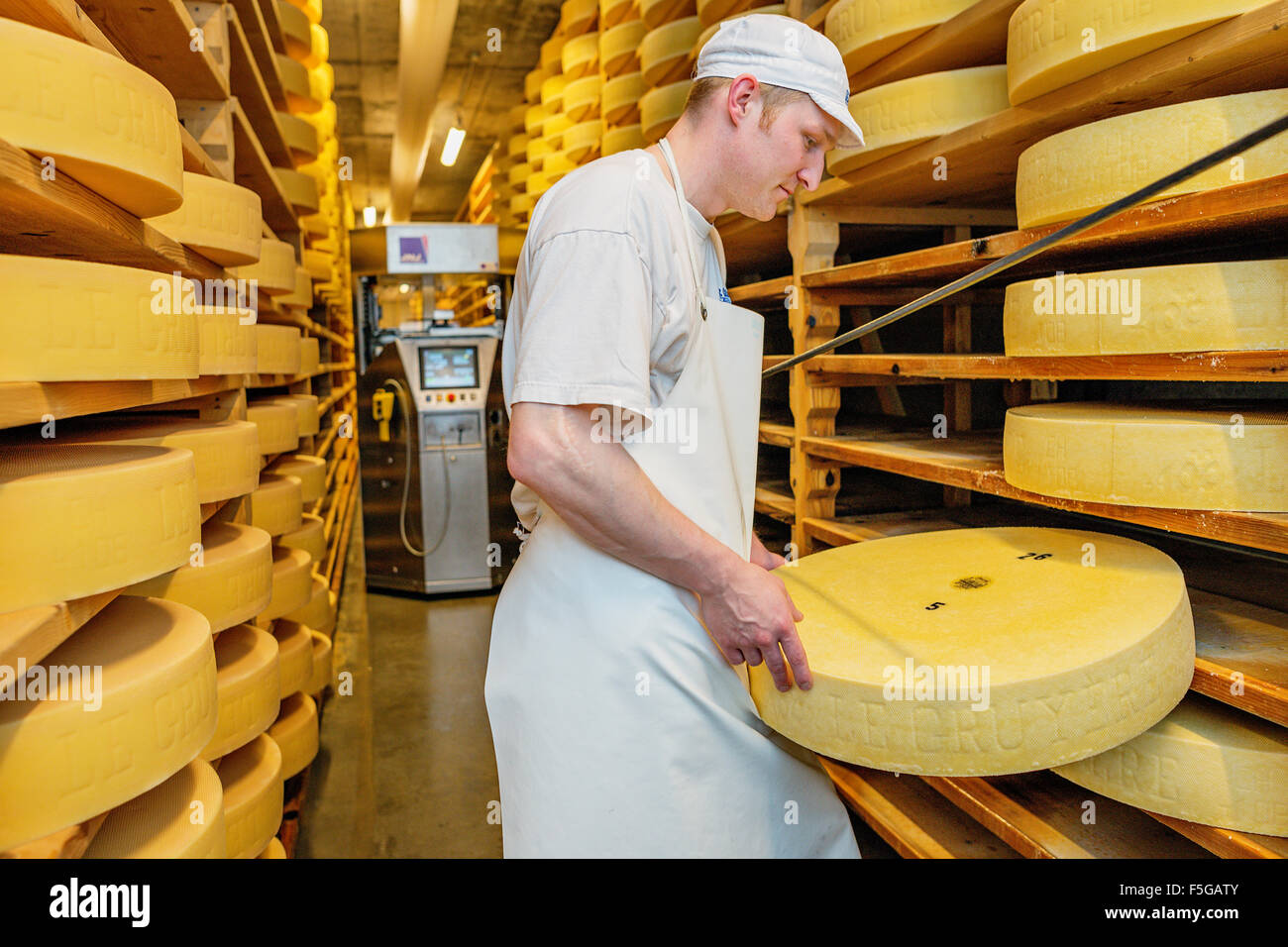Order Cheese for Sale Online Melbourne's Trusted Cheese Makers
Order Cheese for Sale Online Melbourne's Trusted Cheese Makers
Blog Article
A Comprehensive Guide to Cheese Manufacturing: Actions, Obstacles, and High Quality Control Actions
Cheese production is a complex process that needs precise interest to detail, from the first option of high-grade milk to the final phases of manufacturing. Recognizing the necessary steps involved, as well as the various difficulties that can occur, is critical for maintaining constant quality and safety and security. Implementing effective high quality control measures is critical in an industry that deals with raising scrutiny. As we analyze these facets, it ends up being clear that the future of cheese production will be formed by evolving patterns and modern technologies that can redefine standard methods.

Overview of Cheese Production
Cheese manufacturing is a complicated process that changes raw milk into a diverse variety of milk items, each with distinct flavors and appearances. The trip begins with the choice of premium milk, which can originate from various resources, consisting of cows, goats, and lamb. The structure of the milk-- fat material, healthy protein levels, and the presence of particular societies-- plays a critical duty in the end product.
The process normally includes a number of stages, consisting of pasteurization, where damaging bacteria are eliminated, and the addition of starter societies and rennet, which assist in milk coagulation. Once coagulated, the curds are separated from the whey, and the curds go through various therapies, consisting of cutting, cooking, and pressing, which dramatically influence the cheese's characteristics.
In addition, aspects such as aging problems, humidity, and temperature can significantly change the taste profile and appearance of the cheese. The art of cheese manufacturing depends greatly on the cheesemaker's proficiency, as they must balance science and imagination to create high-grade cheese. Recognizing these foundational facets is essential for valuing the complex nature of cheese production and the wide spectrum of cheeses available in the marketplace today.

Key Actions In Manufacturing
The cheese production process includes numerous vital steps that collectively change raw milk into a finished item. Initially, the process starts with milk collection and top quality evaluation, ensuring that the raw product meets the required standards for cheesemaking. Following this, the milk is sterilized to get rid of hazardous bacteria, improving the safety of the final item.
Next, specific starter cultures are added to the pasteurized milk, assisting in the fermentation process. Consequently, rennet is presented to coagulate the milk, resulting in the separation of curds and whey.
Once the desired structure is attained, the curds are drained pipes and pushed right into mold and mildews, forming the cheese. Each of these actions is critical in ensuring the high quality and features of the cheese produced.
Common Obstacles Encountered
While celebrity production procedure is diligently made, numerous challenges can occur that influence both manufacturing efficiency and product top quality. One widespread obstacle is variations in basic material top quality, particularly milk. Variations in milk composition can influence curd formation, resulting in disparities in texture and flavor. Additionally, the sourcing of top notch milk is vital; poor-quality components can jeopardize the final item - cheese factory melbourne.
Another considerable obstacle is keeping optimum fermentation conditions. Temperature and moisture changes throughout aging can result in undesirable microbial development, impacting flavor profiles and cheese security. Staffing problems, including a scarcity of experienced labor, can prevent operations and lead to mistakes in production procedures.
Devices upkeep is also critical; failures can interfere with operations, causing production delays and boosted expenses. Finally, regulatory conformity offers its very own collection of difficulties, as makers have to stick to stringent food safety and security standards, which can vary by area. Navigating these challenges requires Click Here an aggressive approach, integrating comprehensive training, regular equipment checks, and strong supplier partnerships to ensure a regular and top quality cheese output.
Quality Assurance Strategies
Making sure item uniformity browse around this site and safety and security counts greatly on reliable quality assurance methods throughout the cheese manufacturing process. These strategies incorporate different phases, from basic material selection to end product analysis.
One critical element is the monitoring of milk top quality, which includes screening for microbial contamination, somatic cell matters, and antibiotic residues. Executing strict distributor assessments guarantees that only high-quality milk is used, laying a solid structure for the cheese-making process.
Throughout manufacturing, important control factors (CCPs) should be recognized and kept an eye on. This consists of temperature level control throughout pasteurization and fermentation, in addition to pH tracking throughout curd development - cheese makers melbourne. Regular sampling and analysis of whey and curds can assist detect inconsistencies from wanted criteria early
Post-production, sensory analyses, chemical analyses, and microbiological screening are necessary to verify that the end product fulfills well-known quality requirements. Product packaging and storage conditions likewise need close oversight to stop spoilage and contamination.
Incorporating a durable quality management system, including documents and traceability, supports conformity with food security laws. By embracing these thorough top quality control strategies, cheese manufacturers can significantly boost product high quality and customer trust fund.
Future Patterns in Cheesemaking
As celebrity manufacturing landscape progresses, innovative techniques and modern technologies are forming the future of cheesemaking. One significant pattern is the raising use of automation and fabricated knowledge (AI) in production procedures. These technologies enhance performance, lower labor prices, and enable better precision in cheese formulation and aging, resulting in constant high quality and taste accounts.
Sustainability is one more crucial focus, with cheesemakers taking on eco-friendly methods, such as sourcing milk from neighborhood ranches, utilizing sustainable energy resources, and carrying out waste reduction techniques. This shift not only appeals to environmentally conscious customers however additionally addresses governing stress for lasting methods.
Furthermore, the demand for artisanal and specialty cheeses remains to climb, motivating manufacturers to discover special taste combinations and innovative aging techniques. This trend is enhanced by the expanding interest in plant-based and non-dairy cheese choices, driven by dietary preferences and health considerations.
Additionally, developments in innovation promote enhanced traceability, permitting customers to better comprehend the origin and production approaches of their cheese. As these trends unravel, the cheesemaking industry is poised to embrace a future characterized by innovation, sustainability, and a commitment to their explanation high quality.
Verdict
In recap, cheese manufacturing incorporates a complicated interplay of processes, obstacles, and quality assurance measures that are vital for generating diverse cheese varieties. The option of high-grade milk, adherence to pasteurization criteria, and precise fermentation problems are crucial for guaranteeing product safety and uniformity. Resolving existing challenges, such as labor shortages and devices upkeep, along with accepting future fads in automation and sustainability, will significantly enhance the cheese industry's capability to satisfy evolving consumer demands and keep high requirements.
Report this page